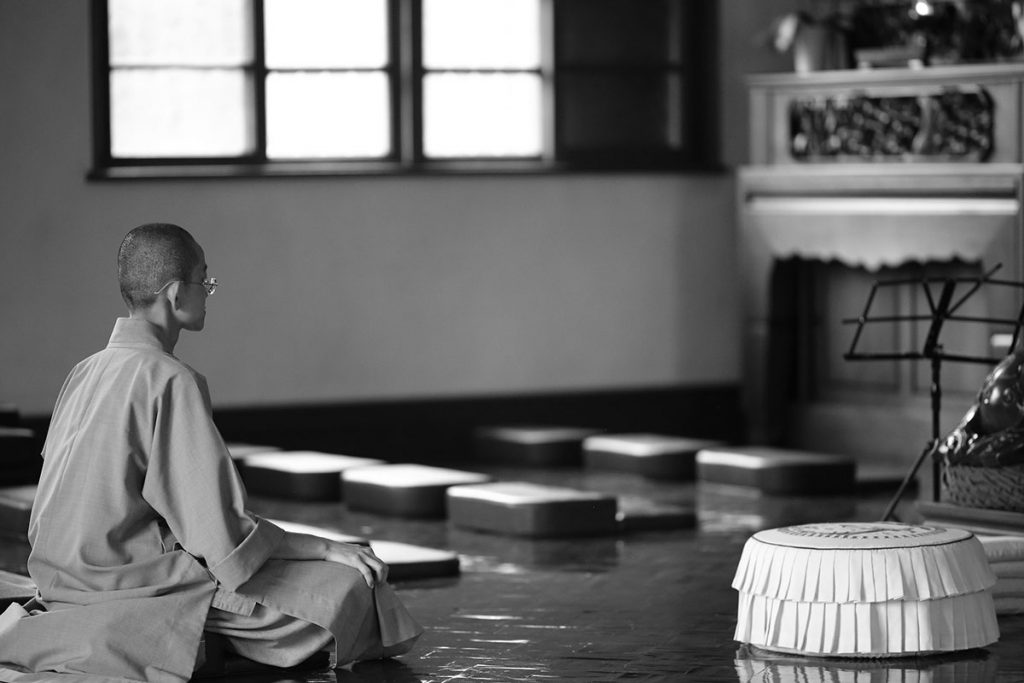
The Six Perfections (or Six Paramitas using the Sanskrit term) are virtues or strengths one strives to develop and practice along the Buddhist spiritual path, as they lead to enlightenment. Among the six – which are giving, precepts, forbearance, diligence, samadhi and wisdom – the first, the practice of giving, or generosity, is considered as the foundation as it focuses on benefiting others. Dharma Master Cheng Yen explains:
The Buddha teaches that we must cultivate not only to benefit ourselves, but also to help others. To benefit others, we have to practice the paramita of giving, which is to go among people to help those in need and relieve their suffering. In doing this, we aim to give with a pure heart without any kind of desire or asking for anything in return.
There are three ways of practicing generosity according to Buddhist teachings:
- Giving material things
- Giving loving protection
- Giving loving understanding
The instructions with regard to the first, giving material things, point to the importance of one’s motivation. Charitable giving should be selfless and so without ulterior motives, it should also be free from outside pressure, fear of poverty, and any intention to harm.
The second form of generosity involves giving our loving protection to those who are experiencing fear – which could be fear of others, fear of being sick, fear of dying, or fear of a catastrophe.
The third form of generosity, giving loving understanding, pertains to sharing the precious Dharma, yet this should be done with great care and respect and not just with anyone. Our intent should also be pure and without any self-centered aims.
Overall, one is encouraged to practice generosity towards representatives of the Three Treasures (Buddha, Dharma, Sangha), towards one’s parents, the sick or in need of protection, and especially people we consider foes or rivals. In giving, our attitude should be compassionate, joyful, respectful, non-judgmental and enthusiastic. And, as Master Cheng Yen reminds us again and again, one should give without attachment or expectation of anything in return. In the perfection of giving, since there can be no giving with receiving, the giver and receiver arise together and are one.
The Buddha also taught that one doesn’t need to be wealthy in order to give. Master Cheng Yen refers to a story about a poor man who came to see the Buddha bemoaning his fate, stating that, “I’m destitute and have nothing. How am I to practice giving?” The Buddha replied that, “Even in poverty, with no material possessions to your name, you can still give,” and then explained seven ways:
The first way you can give is to smile. When you see people, be amiable and smile. Don’t bemoan your fate and wail about being poor and miserable. Life is hard for you, but when you complain, you’re negative and bitter, and people will keep away from you because your attitude makes you unpleasant to be around. So, don’t do that. When you see people, be friendly, warm and amiable.
Secondly, when you see people, always say nice things to them. No matter what they say to you, don’t say anything unkind. Always say good things about others, both in front of them and when they’re not around to hear you. Speaking kindly and positively is another way you can give.
Thirdly, keep a good, kind and charitable heart. Don’t think negatively of the people you encounter. Instead, you should see everyone as a good, decent person who’s nice and approachable. Also remember that you’re a good, decent person too, so be friendly in reaching out to others. That’s another way you can give.
Fourthly, you can give with your sight. If you encounter people who have poor eyesight, you can help point out the way and guide them in the right direction. With your healthy eyes, you can be of help to people who can’t see well.
Fifthly, you can give your labor and physical strength. Some people aren’t very healthy and strong, so they can’t take on physically taxing work. When you see that they need help, be it moving something heavy or doing physically demanding work, you can go and help them or even do it for them. That’s a kind of giving also.
The next way you can give is to show people respect. We need to have respect towards all people. The elderly deserve respect, but we should also treat people of all ages respectfully and courteously. This is the giving of respect.
Lastly, you can give by offering people your love and care, such as by supporting and helping children and people who are poor or physically impaired. Living in this world, we should have love toward all people, and even toward all living creatures.
In her teachings, Master Cheng Yen urges us all to make giving a part of daily life, as it not only benefits others, but enriches us as well. In fact, giving and helping others is at the heart of the Tzu Chi Path.
Through helping, we witness all kinds of suffering that open our eyes and make us see how blessed we are. We also see the impermanence in life and that suffering is all around us. These are life truths that we’re normally ignorant about and would remain unaware if not for such contact with others. So, in giving, we need to be thankful to those suffering, for their suffering teaches us and wakes us up to life’s truths. We should be very grateful and help them sincerely, without thinking of ourselves as givers or doers of good. We shouldn’t expect anything in return either, even appreciation or gratitude. If we can be this way, then our mind will be free of attachments. This is the inner freedom that a bodhisattva enjoys.
The sections in italics consist of edited excerpts of material compiled into English by the Jing Si Abode English Editorial Team, based on Dharma Master Cheng Yen’s talks.
The sections in italics consist of edited excerpts of material compiled into English by the Jing Si Abode English Editorial Team, based on Dharma Master Cheng Yen’s talks.
































